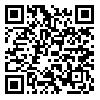BibTeX | RIS | EndNote | Medlars | ProCite | Reference Manager | RefWorks
Send citation to:
URL: http://rjms.iums.ac.ir/article-1-715-en.html
Background & Aim: Preeclampsia and eclampsia are threatening complications of pregnancy that influence the health of mothers and their fetuses therefore,the prevention of these complications is very important. The need for vitamin C increases during pregnancy and breast-feeding, so providing mothers with vitamin C through natural diet is very prominent. The aim of the present study is to evaluate the correlation between the consumption of diet rich in vitamin C and preeclampsia and eclampsia. Patients & Method: In this case-control study, data collection was done through interviews and filling out questionnaires consisting of two parts. The first section included questions related to background variables and the second part contained some questions relevant to the frequency of the consumption of vitamin C-rich foods. Then, the reported amounts of ascorbic acid in urine and plasma were recorded. 154 women who participated in this study had been selected through a continuous sampling method. The subjects were divided into two groups of case and control. The case group included 75 women with preeclampsia and eclampsia, and 79 women not attacked by preeclampsia or eclampsia formed the control group. The age range of the subjects was between 18 and 35 years. Both groups were matched according to their gravida and multivitamin supplement consumption. Results: The findings indicated that there was a meaningful relationship between preeclampsia, eclampsia and the consumption of vitamin C-rich foods. This relation was significantly meaningful according to the number of servings and also the amount of vitamin C received: for the number of servings for both fruit and vegetables (P=0.00), and for the amount of vitamin C received from diet(≥85mg/day)(P=0.00). Also, the concentrations of ascorbic acid in plasma and urine were(P=0.03) and(P=0.05) respectively, which was significantly related to the presence of preeclampsia and eclampsia. Conclusion: As the results showed, there were direct relations between preeclampsia, eclampsia and insufficient consumption of vitamin C. Proper educational programs about nutrition during pregnancy, especially during the first trimester of the first pregnancy, are recommended and prospective studies are also suggested in order to confirm the existing findings.





